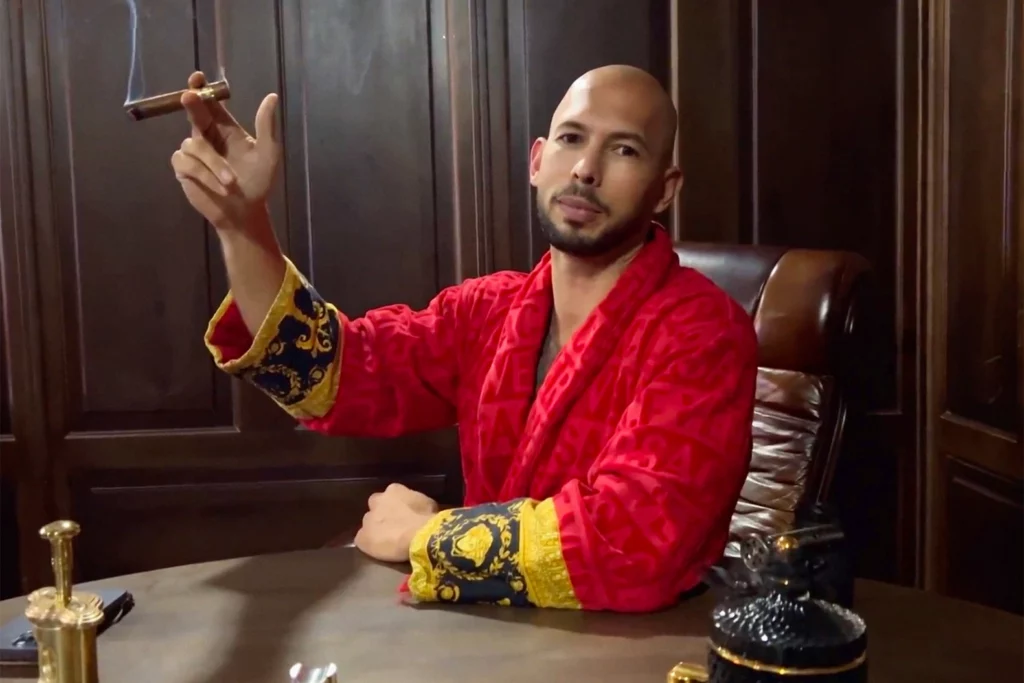The Sexual Revolution
Andrew Tate, symptom of the Sexual Revolution
By Jonathon Van Maren
Subscribe to our Substack here. Buy our books here or here. Thanks for reading!
Over the past year, thirty-six-year-old Andrew Tate has become a cultural phenomenon. On social media, the former British kickboxer-turned-influencer is one of the most famous men in the world, with over eleven billion views on TikTok alone. Tate is the personification of various internet subcultures, combining the critiques of the anti-feminist “manosphere” and the alt-right with the posture of a pickup artist. A self-described pimp who has stated he believes sexual fidelity is only for women, he made his millions running porn sites. He now uses social media to accrue legions of young male fans and monetize them by running online programs such as Hustler University, which sells tips on how to pick up women and get rich quick. His popularity grew when several social media platforms decided to simultaneously de-platform him, landing him interviews with everyone from Tucker Carlson to Piers Morgan.
On December 29, Romanian authorities arrested Tate and his brother at his Bucharest mansion on charges of human trafficking. Six women have accused Andrew Tate (and other suspects) of running a “lover-boy” scheme in which they persuaded women they wanted a relationship but then forced them to perform in pornographic videos. He remains in jail without bail on charges of rape and sex trafficking.
Tate’s status as an international internet celebrity makes this more than a local crime story. It is crucial to understand why he is wildly popular among men today. Tate made his money by turning his romantic partners into “camgirls” and selling their bodies to viewers online. On a now-deleted section of his website that pitches his tactics to other men, Tate wrote:
I’ve been running a webcam studio for nearly a decade, I’ve had over 75 girls work for me, and my business model is different than 99% of webcam studio owners. Over 50% of my employees were actually my girlfriend at the time and, of all my girlfriends, NONE were in the adult entertainment industry before they met me. . . . My job was to meet a girl, go on a few dates, sleep with her, test if she’s quality, get her to fall in love with me to where she’d do anything I say, and then get her on a webcam so we could become rich together.
Andrew Tate is a symptom of our culture’s crisis of masculinity rather than a solution to it. He’s a self-described pornographer who says he is “too smart to read.” But what he does is “win.” He drives fancy cars, flies on private planes, lives in fancy mansions, and parties in dozens of countries. All the while, he markets himself as an opponent of “Western degeneracy” while boldly selling a different sort of degeneracy in response.
Tate is fundamentally a creation of our current moment. Because our post-sexual revolution culture advocates gender neutrality and condemns traditional masculinity, he can advocate overt misogyny and claim to be defending traditionalism and masculinity. He can argue that his ugly views attract backlash merely because they are dissident; that he is not a sleazebag, but a heroic realist. He runs porn sites despite arguing that everyone should “live true to God and yourself”; he says he loves “super-religious countries” even though they enforce a baseline of morality he has no desire to live by. But because he angers progressives and claims to be fighting for “truth,” he frequently gets away with making these assertions without any pushback from interviewers.
Tate’s popularity is a reminder that in a society frequently hostile to traditional masculinity, lucrative opportunities arise for hucksters to amass influence by selling the genuinely toxic kind. Tate tells men to take back their lives and assert control—at the expense of women. There is no mutual, Christian self-sacrifice in his thinking. He says that our society wants to keep young men “poor, weak, complacent, and alone”—but makes his money from porn and casinos, facilitating addictions that do precisely that. His alleged conversion to Islam was a pathetic attempt to borrow credibility from a worldview that he hopes will help him cosplay as an ancient warlord rather than a promiscuous porn peddler who works out and mastered the social media algorithms.
In the wake of the sexual revolution, Christians called for a return to the values we abandoned—and many believed that a backlash would eventually bring this about. But in a culture thrown into chaos by the implosion of our moral infrastructure, we are seeing many kinds of responses emerge. There is the self-help stoicism of Jordan Peterson and the common-sense feminist critique of Louise Perry (see her book The Case Against the Sexual Revolution). And then there is Andrew Tate, a creature of the sexual revolution who advocates masculinity without virtue, strength without tenderness, and casual cruelty by right of conquest. His popularity is an indication that in our pornified, post-Christian society, this particular path has proven attractive to legions of confused young men. These men desire, as men always have, to be heroes—but in a society that has left them with no guidelines or pathways for achieving true heroism, many cling to the false promises of Andrew Tate.
This column was first published at First Things.








